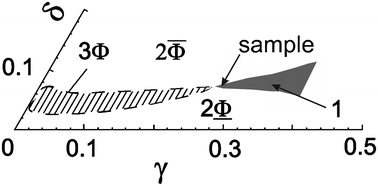Temperature dependence of the surfactant film bending elasticity in a bicontinuous sugar surfactant based microemulsion: a quasielastic scattering study†
Abstract
Currently, the design of microemulsions is focussed on the formulation of environmentally compatible systems formed by non-harmful

- This article is part of the themed collection: scattering methods applied to soft matter

 Please wait while we load your content...
Please wait while we load your content...